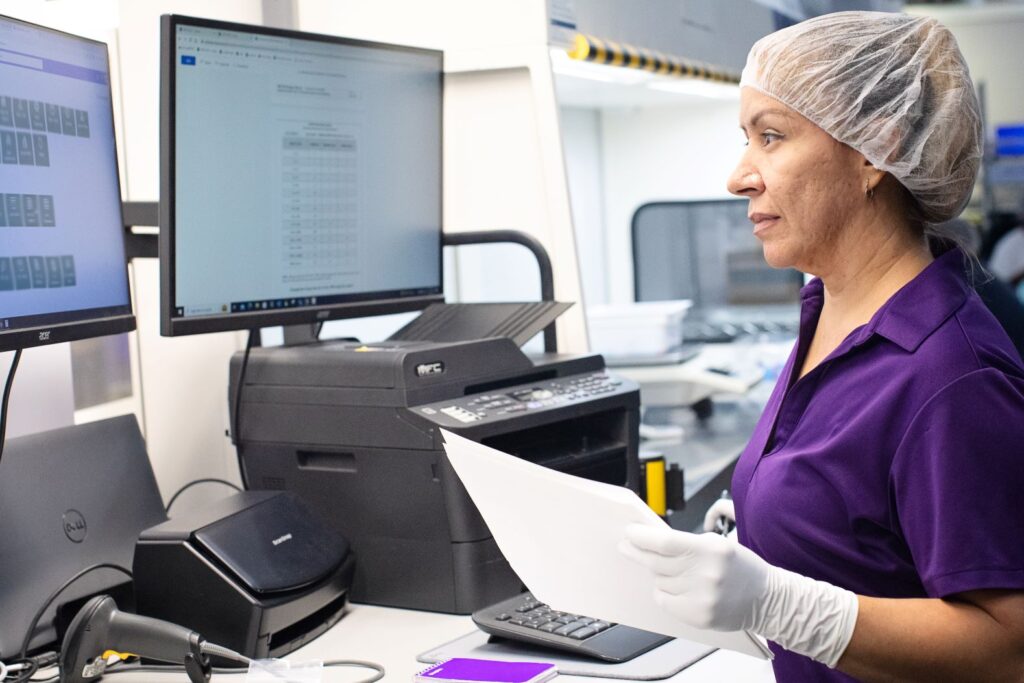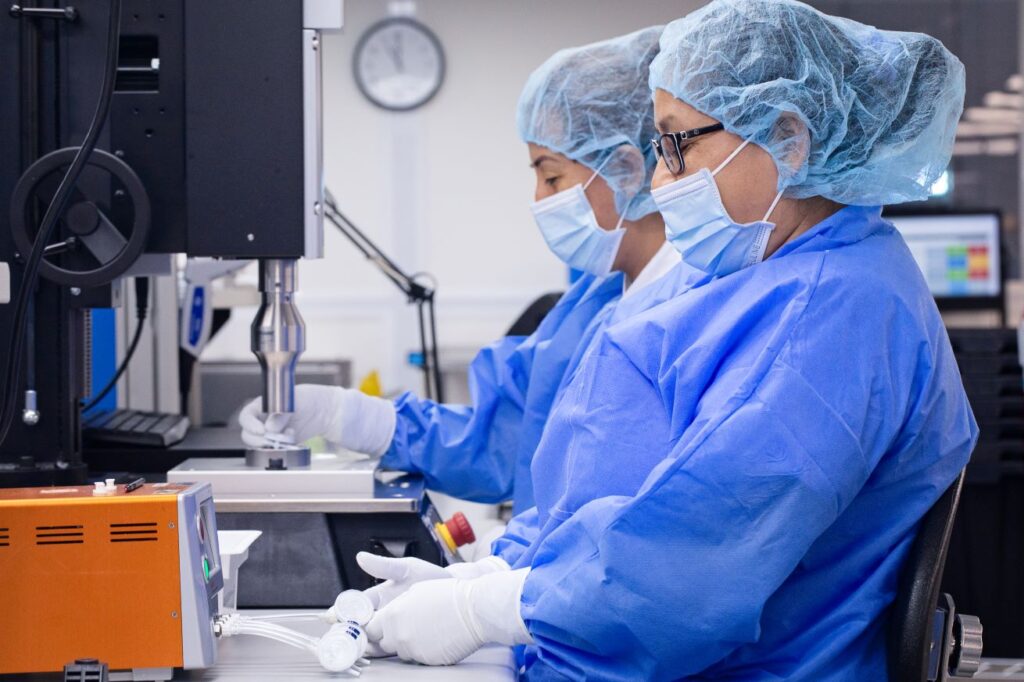The medical device industry is experiencing rapid transformation. From breakthroughs in product innovation to increasing demand for cost-effective business operations, the sector is turning to contract manufacturing for medical devices as a strategic solution.
The global medical device contract manufacturing market was valued at approximately USD 76.80 billion in 2024 and is projected to grow at a compound annual growth rate (CAGR) of 12.36% from 2025 to 2030, reaching USD 151.98 billion by 2030. This growth is driven by aging populations and the rise of chronic diseases, prompting many medical device companies to outsource parts—or all—of their production processes to specialized contract manufacturing service providers. This shift enables companies to focus on product development while ensuring compliance with industry standards and reducing overhead costs.
But before you enter into a contract manufacturing agreement, it’s vital to understand what separates a capable manufacturer from a great one. The questions below are designed to help you assess the right contract manufacturing partner for your product, budget, and timeline.
1. What Is the Manufacturer’s Experience With Your Product Type?
The first thing to assess is whether the manufacturer has hands-on experience with your specific medical device production requirements. Different devices require different approaches. For example, therapeutic devices have vastly different manufacturing protocols than wearable diagnostic tools or surgical implants.
A qualified medical device contract manufacturer should be able to provide:
- Examples of contract manufacturing projects similar to yours
- A history of success in producing high-quality products
- Familiarity with your manufacturing application needs, including raw materials and specialized processes
This experience often translates to a better understanding of how to meet regulatory requirements, prevent delays, and avoid costly redesigns.
An experienced partner should also be able to assist with technical expertise, recommend optimal assembly procedures, and support your business model through each development phase, from design to full-scale production.

2. What Regulatory Standards Does the Manufacturer Comply With?
The regulatory environment in the healthcare industry is among the most stringent in the world. Your selected contract manufacturing partner must adhere to internationally recognized compliance standards to ensure patient safety and avoid liability issues.
Look for compliance with:
- ISO 13485: The leading global standard for medical device manufacturers, ISO 13485 outlines requirements for a quality management system specific to the medical devices industry.
- FDA 21 CFR Part 820: Required for devices sold in the U.S., this regulation establishes current good manufacturing practice (CGMP) requirements for medical device manufacturers.
Additionally, your manufacturer should assist in your regulatory submission by providing documentation, test data, and validation protocols required to prove that your device meets quality standards.
A company in compliance will demonstrate familiarity with audits, inspections, and the contract manufacturing process necessary to meet all regulatory requirements across multiple geographies. This is crucial for reducing time to market and ensuring a smooth product launch.
3. What Is the Scope of Their Manufacturing Capabilities?
A robust contract manufacturing services company should offer key solutions in-house rather than outsourcing to other sub-contractors. Modern contract medical production requires an integrated solution that includes:
- Early-stage conversations about device design and product specifications
- Packaging design
- Advanced assembly capabilities (both manual and automated)
- Packaging, labeling, and sterilization services
- In-house laboratory services and validation testing
- In-house certified cleanrooms for Class I, II, and III devices
In many cases, having a complete manufacturing solution under one roof minimizes manufacturing costs, shortens development timelines, and streamlines business operations.
A truly capable partner will also invest in cutting-edge manufacturing technologies, track production progress transparently, and tailor manufacturing capabilities to your unique product lines and production needs.
4. Can They Scale Production and Meet Turnaround Time Goals?
Your chosen manufacturer must support your growth. Whether you’re launching a new device or scaling an existing one, you need confidence in their ability to:
- Ramp up production capacity quickly
- Handle fluctuations in production volume due to market demands
- Reduce lead times and optimize turnaround time
- Provide consistent updates on production progress
These capabilities depend heavily on access to modern production equipment, highly trained staff, and scalable systems that can accommodate either limited batches or mass production.
5. How Transparent and Responsive Is Their Communication?
Lastly, don’t underestimate the importance of communication. A proactive and transparent contract manufacturing partner ensures better results, fewer surprises, and stronger alignment across teams.
Evaluate their:
- Customer service response times
- Access to 24/7 Customer Portal to track production progress
- Adherence to intellectual property protections and intellectual property rights
- Openness in sharing updates, timelines, and process improvements
- Culture of customer satisfaction and accountability
Having a responsive team that communicates well will directly impact the success of your entire process, from quoting and planning through to final delivery of the finished product.
Why More Medical Device Companies Are Turning to Contract Manufacturing
The shift toward contract manufacturing for medical devices is not just a passing trend—it’s a strategic evolution in how the medical device industry operates. As complexity increases and regulatory demands intensify, more OEMs are adopting flexible, scalable partnerships with contract manufacturing services providers to stay competitive.

Several key factors are driving this transition:
- Market growth driven by aging demographics and chronic illness
- Technological and product innovation increasing complexity
- OEMs seeking ways to maximize revenue while reducing in-house burden
- Need for innovative solutions that accelerate development while minimizing manufacturing costs
By partnering with experienced device contract manufacturing companies, businesses can add expertise that they lack, regulatory experience, and production optimization. These collaborations empower companies to bring high-quality products to market faster, improve margins, and remain agile in an increasingly competitive and regulated space.
Your Complete Manufacturing Solution
With over 45 years of proven experience, PRO-TECH Design provides comprehensive services that can support your product launch goals, meet stringent regulatory requirements, and accelerate your path to market success.
If you’re looking for a trusted contract manufacturer with a proven track record and flexible capabilities to support your growth, contact PRO-TECH Design today for a consultation.
FAQs
How does the contract manufacturing process work?
Depending on the service provider, the process can include product or packaging design, validation, prototyping, production equipment setup, full-scale production, assembly quality control processes, and shipment of the finished product.
What are the key benefits of contract manufacturing?
The benefits of contract manufacturing include reduced overhead costs, faster time to market, access to specialized expertise, and improved scalability of your business model.
How does contract manufacturing help with compliance?
A certified, experienced contract manufacturer helps to ensure that your product meets all regulatory standards and avoids any pitfalls, helping you maintain compliance with industry standards and pass audits with confidence.
How can I protect my intellectual property with a manufacturing partner?
Always formalize intellectual property rights in your contract manufacturing agreement, and work with reputable partners who prioritize data security and legal protection.
What are some examples of contract manufacturing in healthcare?
Examples include outsourced custom assembly solutions, packaging, sterilization services, and medical device design support for diagnostic tools, surgical kits, and therapeutic devices.
How do I know if my product is ready for contract manufacturing?
If you have finalized your product design, validated initial prototypes, and established production volume estimates, you may be ready to start sourcing contract manufacturing services.

